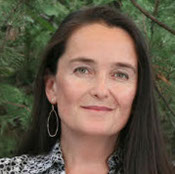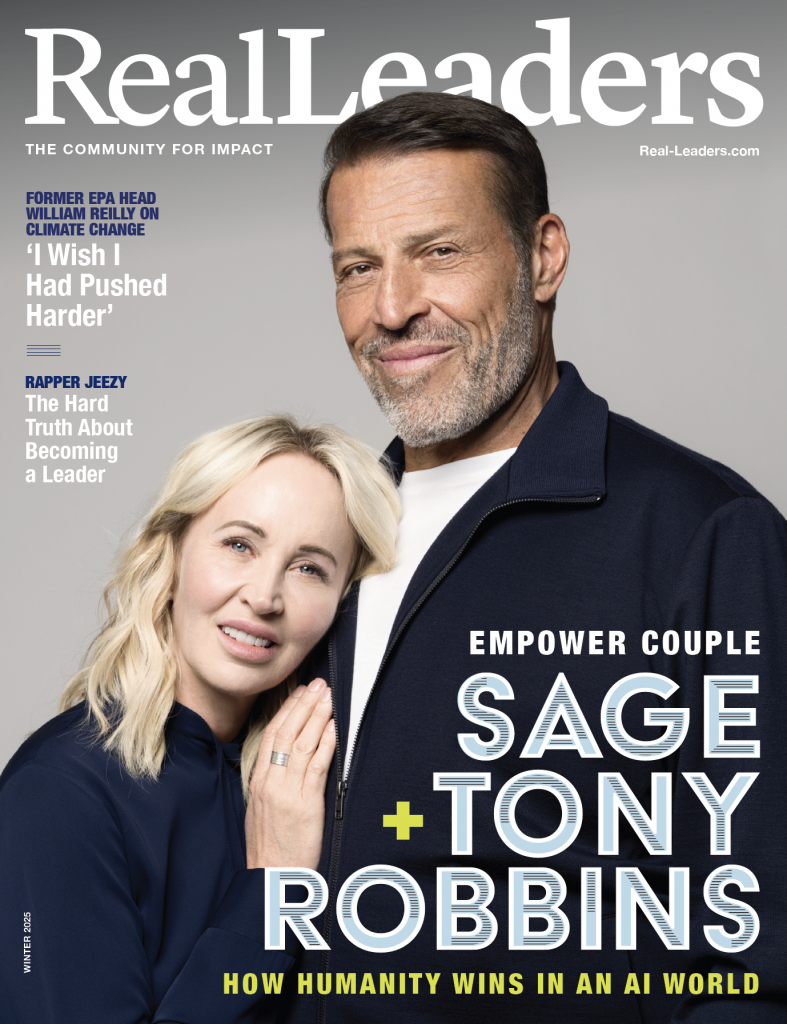“Women of Iceland” is the first book of a trilogy featuring intimate photographs and personal interviews with courageous women stepping first to shape the frontier of a changed world. There is clearly something happening with the women of Iceland.
From her Viking history to the famous strike of 1975 and hosting the globe’s first democratically elected woman President, to her transformation of finance through feminine values, and now leading the world’s first ever comprehensive gender pay equity legislation – what is it about this small fishing island that brought her to the frontier of feminine and gender equality? The following are selected interview excerpts from: “Women of Iceland in Their Power: Courageous Vulnerability Book.”
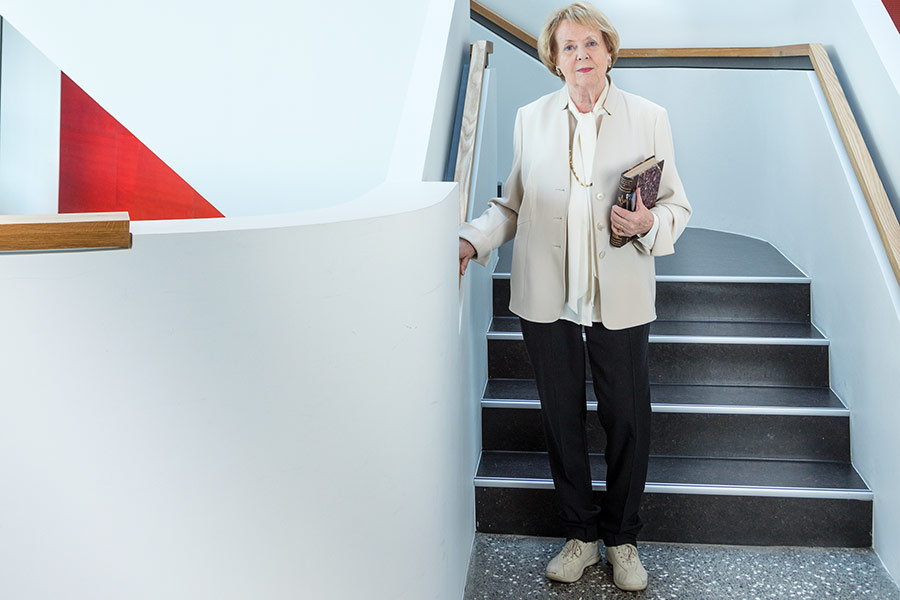
The Mother of Iceland.
Vigdís Finnbogadóttir (pictured above) served as the first woman President of Iceland and the first democratically elected woman in the world. She paved the way for generations of women in Iceland and worldwide to consider, many for the first time: “If she can do it, why can’t I?”
At 87 years young, and serving as the UNESCO Goodwill Ambassador of Languages, Vigdís has continued to tirelessly champion linguistic diversity, women’s rights and education worldwide; and last year, with the support of the people of Iceland launched her next venture – the newly opened Vigdís International Centre for Multilingualism and Intercultural Understanding. She shares her approach to leadership, philosophy on life and how she is keeping the conversation going.
I have dedicated my life to analyzing and preserving the languages of the world. Without them, you lose the ability to think and express yourself. The Icelandic language hasn’t changed in centuries and can be traced back to the Middle Ages. The Icelandic Sagas – prose and narrative on the early struggles and conflicts found in thirteenth and fourteenth century societies – convey the full range of human emotions. One of these sagas tells the story of strong women, who in an age of slavery set their slaves free, knowing that by doing so would make them friends, not enemies.
In many cases, women actually don’t know they are strong, and neither do the men. I was given important duties by my mother when I was young and it made me realize that I was a responsible person. As a teenager, a group of boys included me in their discussion group on history, literature and art. It was an unusual act at the time, but one that gave me an impression that I was welcome and valued.
The greatest joy in life is being alive – if you can handle life, that is. This means offering the best of yourself to society: Your honesty, ambition, mind and love for people. Being curious and wanting to use your eyes and ears will make you what you are.
I am uncomfortable with the term “leader,” if it is placing one above the other. It should be handled by people who are strong and can be trusted. I look for positive leadership – something creative, that inspires, with ideas that can be applied for good. When I was President and arrived in Reykjavík in the official car, children would ask me if this big car was mine. “No,” I would answer, “It is yours. You own it!” They would look at me in amazement. It is so important that as public leaders we know we are only there to serve the people. Leadership is also about going ahead and having people follow you. Popularism is like the flu,
if it gets too strong it can be bad for society.
The Icelandic concept of a role model is encapsulated in the word “fyrirmynd.” It’s more powerful than simply trying to copy someone’s actions – it has less to do with playing a “role” and more to do with authenticity and what is good for people. Some people have the gift of great speechmaking and become great leaders, but many who haven’t got oratory skills never become one, despite being qualified. We must not underestimate the power
of language.
As President, my office door was open once a week to hear people’s problems. It might have been a problem as small as a car license, but the fact someone was prepared to listen was the important point.
In 1975, before I had decided to run for President, the United Nations declared that year International Women’s Year, to raise awareness on subdued women around the world. In Iceland, there was discontent about the unfair wage gap and women began meeting in public places regularly to discuss issues, sing songs and socialize.
Suddenly, the whole country was shut down at certain hours, because all the factories, businesses and restaurants relied on women to keep them going. The women’s strike made world news, and in 1980, when presidential elections came around, someone said, “we cannot have this election without a woman.” Imagine my surprise when I started seeing my name in the newspapers. I resisted at first, but when someone made me see this role as being a spokesperson for others, it helped change my mind.
During my campaign I received a telegram from the entire crew of a fishing ship. It was signed by everyone, from the captain to the mechanic below deck. They asked me to be their president. It touched me deeply, as I knew why they had sent it – they were acknowledging the fact that women run everything ashore while they’re at sea. It was also an acknowledgment that we are the ministers of finance, ministers of education and the architects of our homes, with the specialized skills to successfully run a household and life. It was interesting being the only woman moving in a male political world. While men got away with just polishing their shoes and putting a handkerchief in their jacket pockets, I had more of a problem with what to wear. The one thing I insisted on was wearing high heels; not for any fashion statement, but because I thought it important to look a man in the eye, not up to him.
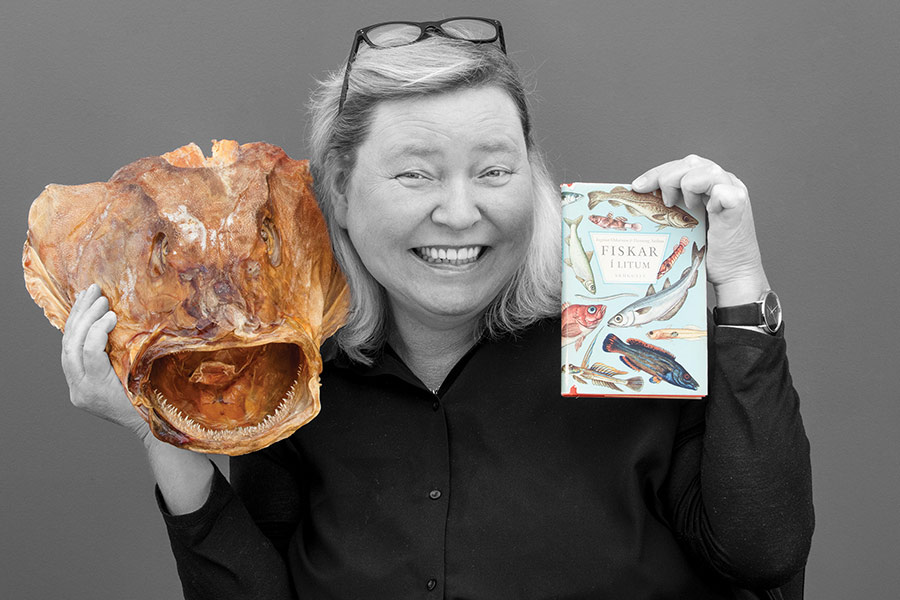
If You Can’t Beat ‘em, Eat ‘em.
Katrín (kata) Pétursdóttir is the CEO of the world’s largest fish oil company LYSI, founded in 1936 by her grandfather. It exports Omega-3 brain-boosting supplements globally.
Nothing goes to waste in our factories, every part of the fish is used for something. It’s an ideology that should be applied to business in general – a consideration for nature, making money and giving back. Despite the company being founded by my grandfather I bid on it and purchased it in 1999; a family business does not always mean getting something for free. I always choose to prove things on my own, first.
My mother taught me to believe in my ambition and to not lack courage when doing something I believed in. She would tell me that waiting is the same as losing, and I pushed through many uncomfortable situations at an early age because I believed I could do it.
I made my fortune in the “head hunting business!” When I first went into the fish business, I asked my mama to join me as my partner, and we secured a small factory in Nigeria, where we opened a new market to sell Icelandic fish heads. We convinced the Icelandic fishermen that the fish heads being thrown away had value. We paid them for it and started producing fish oil health products. The hardest part was convincing people that something regarded as waste could actually generate income. Interestingly, Nigerians saw nothing wrong with an Icelandic women doing business in their community. I found more resistance from men on an international level when attending conferences and meetings. After an encounter with a businessman who got offended by the fact that a woman had turned up for his meeting, we considered taking male businessmen along with us, but decided we weren’t prepared to respect other people’s discriminations. We now do business the Icelandic way.
My strength comes from my mother, who died from a car accident in Spain many years ago. Each year on her birthday, we celebrate the occasion with friends and share stories of her life. It’s a constant reminder of a beautiful life and that we all need to make the most of ours. Women have started bringing their daughters to these gatherings now – to continue the legacy and impart wisdom.
Honesty is the hallmark of a good leader. You should keep to the rules, yet still have the flexibility to develop a company that is unique. Being aware of the surrounding community and how you fit into it, is one way of earning respect, and respecting the environment by using renewable energy and not wasting anything is another. It makes me SO angry when I see others polluting the oceans. If we do not respect the ocean, neither we nor the fish will last. It’s about thinking differently. This is something I always try to do. And the secret to a good and happy life? Stay honest to yourself. And drink fish oil every day! My team and I do this every morning.
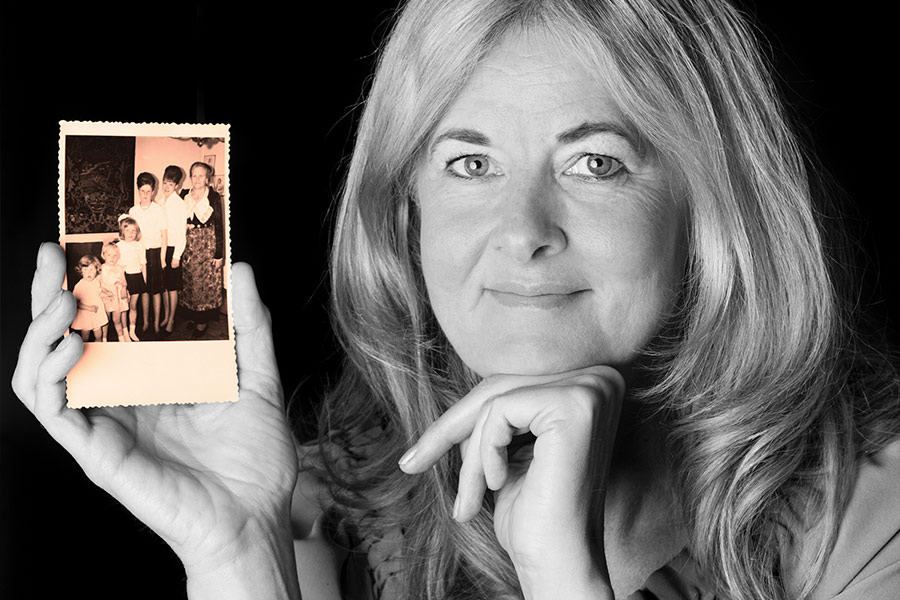
Take me to The Edge.
The first women Chair of the Icelandic Chamber of Commerce in its 99 years of operation, Katrín Olga, gives her views on gender, business, leadership and what more we need in the world right now. Having sold the company she successfully grew and exited, Katrín is also Vice Chairman of Iceland Growth Forum, Board member of Icelandair Group; and looking for her next great business adventure.
I have an urge to go further and be challenged in life. I’m tired of being the polite woman people expect me to be. Women need to find the courage to go out into the streets to get things moving. Iceland was once a leader in technology and an early adopter of innovation, but we’ve become a little afraid lately of moving on. We’re always thinking in four-year periods, based on our election cycle – and not 20 or 30 years ahead, like we should be. We’ve always had strong women in Iceland. Those married to fishermen where the managers at home because their husbands were away at sea for months. We’re also demanding and not accepting of certain things, such as lesser pay for women during maternity leave.
I live by the motto: What you’ve been doing is an indication of what you can do. Because we rank so high in the world as a leader in women’s rights, it doesn’t mean Iceland is perfect. In daily life there is still frustration. For example, there are no women-run companies on the local stock exchange and we should ask why this is so. Maybe my generation is the pioneer in this and change will come for our daughters. Gender diversity should bring about a realization that there’s another way to think about the world – that can help move it forward. Have women been too timid in putting this idea forward? There are two ways to change things – work within the system or destroy it completely. I chose to work from within, but I’m disappointed that it hasn’t worked so well. Destroying the system would have meant sacrificing myself too, so the question is how you change the system without doing this.
I’ve tackled empowerment the professional way; read huge amounts of data and studied McKinsey reports that show increased profits for gender diverse companies. I become angry and despair. Ultimately, you have to “walk your talk” to prove your point, not just be an explorer. There is still a fear that going public with my views would destroy me, not support me. There are two things that I burn for: equality and a farsighted vision for the future. Wouldn’t it be wonderful if a country become a leader by harnessing all the positive things in the world?
You first need to paint a picture of what this looks like; create a vision. The Fourth Revolution is here and disrupting systems. Truck driving jobs in the U.S. are being threatened by automated driving software. Threats and opportunities alike must be highlighted if we are to thrive, not just the exciting, futuristic stuff.
The future I envisage is one where we all stop thinking a certain way – just because we’ve always thought like that – where we stop being afraid and resistant to change.
Why are our kids still being taught to think like us in schools? Why aren’t hospitals treating patients like customers? Why is technology doing away with a need for some personal interactions?
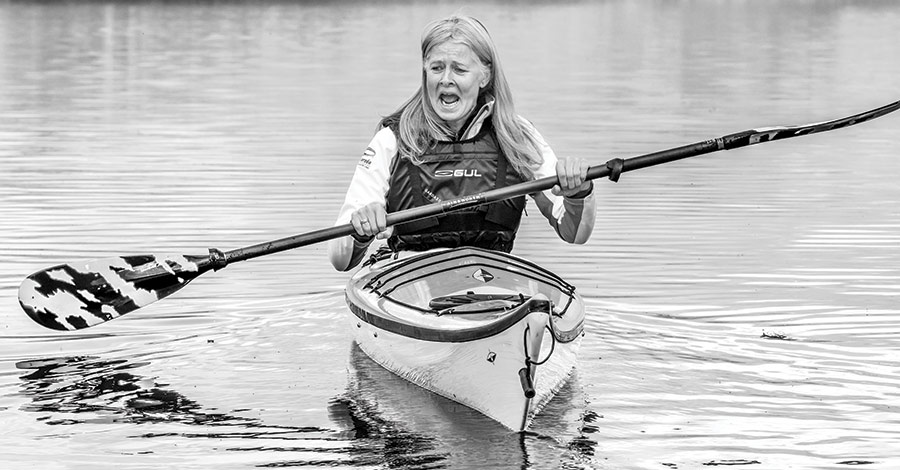
Big change in the world has historically happened through catastrophe, maybe this will be what it takes. Each company should ask what they’d do in a worst-case scenario because this will force them to plan ahead. Be afraid if you’ve been in a comfort zone for too long, it means you’re no longer one step ahead of the competition. Courageous vulnerability is needed. You have the choice to become a victim or a warrior in life, and how you react after a disappointment is crucial. Rather, become the warrior.
Being involved in business can be very creative – you can create a product, process or relationship. Whatever personality you are, you’ll find something that resonates with who you are. Business shouldn’t be something you’re restricted to because of education or qualification and being a leader doesn’t mean you should be an expert who knows everything. Learn how to let go and delegate – it’s been one of my biggest lessons. I sometimes ask myself sometimes what I’d like to leave behind when I leave this earth.
I was reminded of this responsibility recently when my 22-year-old niece picked up a copy of The Most Powerful Women in Iceland list and said, “I will be here one day.” It made me realize the power of my role modeling. I want to be a good role model for other women who are stepping forward first into business, so it’s not so hard for them; and so that we are truly treated equally. I champion women’s equality in all that I do, and sometimes I am criticized for this. I want to be brave enough to be myself, without holding anything back. I want to be taken to the edge!
Iceland has the potential to become the first country to achieve full gender equality. This is an untapped resource. Boys and girls need to be open minded. Put your heart and passion into things, it makes things easier. I’m hopeful for a bright future – looking at data I see a world that is doing better than the past in many ways – despite the despair we see in our news every day. Looking at the wisdom and confidence in our young people, I can’t see them letting us down by allowing the fears of today become the reality of tomorrow.
Women of Iceland is co-produced by Ralph Reutimann and Amber Nystrom. www.RalphReutimann.com/women-of-iceland.

